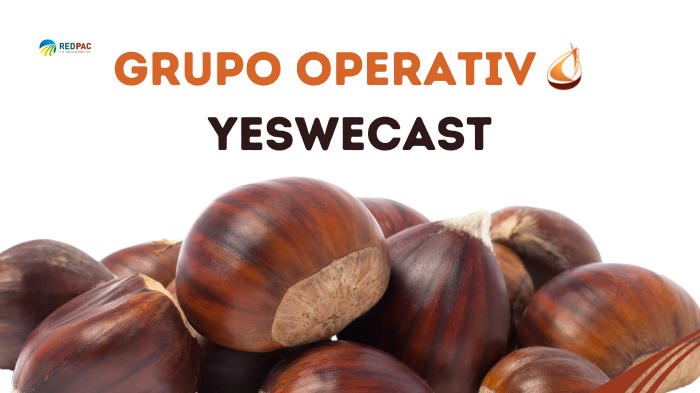
21 de January de 2025
Innovación
Cambio climático y gestión de recursos naturales
This Operational Group was created for the conservation of the genetic material of Spanish chestnut trees.
- This Operational Group was created for the conservation of the genetic material of Spanish chestnut trees.
- Breeding chestnut trees with more resistant genes will help mitigate the effects of climate change and phytosanitary threats.
Castanea sativa, commonly known as the chestnut , is one of the most internationally renowned fruits. Its potential as a source of income—like timber or chestnuts—and its compliance with the requirements of the Common Agricultural Policy (CAP) in terms of food quality, safety, and environmental sustainability, make it a focal point in the agricultural and forestry markets.
However, the Spanish chestnut sector faces significant challenges to overcome in order to remain one of the leading producers of this fruit, alongside China, South Korea, Turkey, and Italy. The main factor jeopardizing this endeavor is climate change , due to its significant impact on ecosystems, causing biotic disturbances—changes caused by living organisms—and thus increasing the likelihood of the disappearance of the chestnut tree and its varieties.
In this context, the YESWECAST Operational Group (OG) was born , whose main objectives are:
- Identification of ancestral genes with greater tolerance and resilience to climatic factors.
- Creation of an open-access catalogue of plant material .
Lines of action
This innovative project seeks to position the Spanish chestnut market as one of the main producers due to the high value of this fruit, its price, and the growing demand for organic products and food intolerances.
To this end, they have begun their journey with the centuries-old chestnut trees in the forests of El Bierzo (León) and will soon expand to other regions such as Galicia, Extremadura, Andalusia, Asturias, and Cantabria.
For the development of its research, the Government has proposed various methodologies and steps to follow:
- Prospecting and sampling of chestnut trees throughout Spain, work began in early September 2024.
- Sending samples to the laboratory of the Foundation Center for Services and Promotion of Forestry and its Industry of Castilla y León (CESEFOR) for the identification of the genome most resistant to biotic and abiotic stress (produced by non-living organisms such as wind or light).
Participants and funding
The YESWECAST Operational Group is coordinated by CESEFOR, which collaborates with:
- Alibos Galicia SL
- Jerte Valley Cooperative Group (ACJV).
- Villuercas Chestnut Producers Association.
- Chestnuts from the Genal Valley, Andalusian Corporate Society (VALGENAL).
- Agricultural Transformation Company SA (TRAGSA).
Furthermore, the supra-regional project is funded by the European Union (EU) through the European Agricultural Fund for Rural Development (EAFRD), which is part of the Strategic Plan of the Common Agricultural Policy (PEPAC 23-27) .









